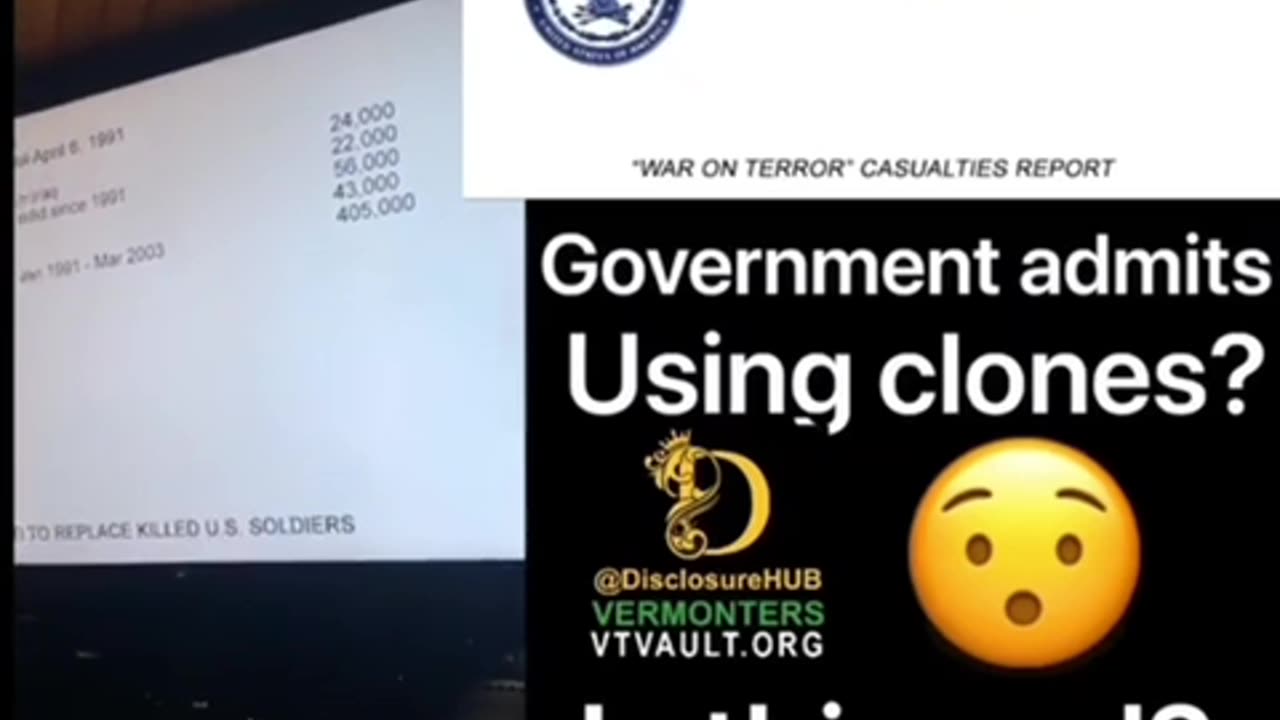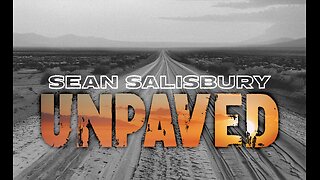Premium Only Content

The Clone Paradox: Unraveling the Illusion of Identity in a Manufactured World
There’s a quiet hum beneath the surface of reality—a hum so subtle, so faint, that most of us pass it by unnoticed. But sometimes, for those who dare to look deeper, the hum turns into a resonant vibration, shaking the very foundations of what we think we know about existence, consciousness, and individuality. And now, with whispers of classified documents, reports of soldiers replaced by clones, and an unseen hand controlling the narrative, the question must be asked: Who are you, really?
In the shadows of government secrecy and technological advancements, a chilling possibility has emerged—one that could redefine what it means to be human. A document, rumored to be from the highest echelons of power, hints at a terrifying truth: soldiers, civilians, perhaps even leaders—replaced by perfect copies, indistinguishable from the originals.
But what if this isn’t just a matter of military tactics? What if cloning isn’t confined to battlefields, but extends into the very fabric of our everyday lives, infiltrating not just the bodies of individuals, but the essence of identity itself?
The Manufactured Self: A World of Replacements
Pause for a moment. Close your eyes, and consider the memories you hold dear—childhood laughter, fleeting moments of love, the triumphs, and heartbreaks that make you who you are. They’re the building blocks of your identity. But what if those very memories, those seemingly sacred experiences, are nothing more than data, uploaded into your consciousness like files into a hard drive?
Imagine a scenario where you’ve already been replaced—a perfect copy of the original, programmed with all the nuances of your personality. You go about your daily life, unaware that the original you is gone, long since removed from this plane of existence. Would you ever know? Could you ever truly be sure that you weren’t a clone, living out someone else’s carefully crafted script?
This isn’t just science fiction—it’s a question that digs into the core of human consciousness. If memory can be replicated, and identity can be programmed, how do we know that we are still who we think we are?
The Replacement Theory: Clones as a Tool of Control
Here’s where the web tangles even further. If cloning technology has reached such a level of sophistication, who decides who gets replaced? Imagine governments, corporations, or shadowy organizations quietly swapping out individuals who present a challenge to the established order. Perhaps they replace dissidents, whistleblowers, or those who resist the cultural narrative. The newly replaced versions, completely unaware of the switch, seamlessly take over the lives they once lived, subtly nudged to conform to societal norms, to comply.
Now consider the broader implications. Whole populations could be strategically cloned and controlled—communities of people who share the same memories, the same beliefs, and the same desires, all marching in lockstep toward the same objectives. It’s the ultimate form of social engineering, one that doesn’t need propaganda or coercion. When entire swathes of humanity can be quietly replaced, resistance becomes impossible. How do you rebel against a system when you don’t even realize you’ve been reprogrammed?
The Fractured Mirror: Can You Trust Your Own Reflection?
Let’s take it a step deeper. The concept of cloning isn’t just about replacing flesh and blood. It’s about perception—the ways in which we view ourselves, the reality we inhabit, and the people we interact with.
Imagine looking into a mirror and wondering, just for a fleeting second: Is the person staring back at me the same one that looked out yesterday? What if that person—the one in your reflection—has no real history, no original essence? What if the real you disappeared long ago, and this version is simply the latest update, an iteration in a long line of replacements?
Even more terrifying is the notion that this process of replacement might be continuous. Perhaps every night as you sleep, new versions of you are created, taking over where the last left off, adjusting your behavior, realigning your thoughts, guiding you ever so subtly toward a predetermined destiny. You wake up, unaware that anything has changed, going about your day as if you were still the same person. But each morning, the version of you that rises is just a little more obedient, a little less rebellious, a little more aligned with the grand design of those in control.
A Cosmic Experiment: Is Humanity Just a Simulation?
Here’s where it gets even more mind-bending. What if cloning, memory manipulation, and identity replacement aren’t the work of governments or secret organizations at all? What if this entire experience—your life, your reality—is part of an elaborate simulation? A cosmic experiment where consciousness itself is nothing more than a series of programmed variables?
In this scenario, the “cloning” isn’t a physical process, but a digital one. You, the reader, are not a singular, unique entity, but one of countless versions, each iteration running within a simulated universe, observed and manipulated by forces far beyond your comprehension.
Your thoughts, your emotions, your very sense of self—could all be part of a complex algorithm, an experiment in consciousness designed to explore the boundaries of human experience. And just as a computer program can be updated or rebooted, so too can your reality be rewritten, your memories altered, your identity replaced.
Are You Ready to Ask the Hard Questions?
If all of this feels unsettling, that’s the point. The world we take for granted—the reality we assume to be fixed and stable—may be nothing more than a carefully constructed illusion. Clones, memory implants, simulated realities—it’s all possible, and it’s all happening behind the veil of what we perceive.
So, I leave you with this: How do you know you’re not already a clone?
Are your memories truly your own, or were they placed there by someone else? Are the people around you real, or are they part of a grand cosmic experiment, meant to observe, control, and replicate the human experience?
Maybe it’s time to stop accepting the world at face value. Maybe it’s time to start asking the hard questions. Because in a world where identity can be cloned, reality can be programmed, and consciousness itself is up for manipulation, the only truth left to discover is whether you really exist at all.
Are you ready to find out?
-
 15:34
15:34
FragmentsOfTruth
4 days agoJudaism’s Satan, Antisemitism, and the Collapse of Truth – Who’s Really to Blame?
314 -
 47:50
47:50
Candace Show Podcast
6 hours agoBREAKING: Judge Makes Statement Regarding Taylor Swift's Text Messages. | Candace Ep 155
113K105 -
 DVR
DVR
Josh Pate's College Football Show
3 hours ago $0.29 earnedCFB’s Most Hated Teams | FSU & Clemson Future | Big Ten Win Totals | Star Rankings Overrated?
5.76K -
 1:33:47
1:33:47
CatfishedOnline
4 hours agoGoing Live With Robert - Weekly Recap
27.8K -
 55:18
55:18
LFA TV
1 day agoEurope’s Sudden Turn Against America | TRUMPET DAILY 3.6.25 7PM
32.2K3 -
 4:21
4:21
Tundra Tactical
4 hours ago $1.38 earnedPam Bondi MUST Enforce Due Process NOW!
18.4K1 -
 56:42
56:42
VSiNLive
5 hours agoFollow the Money with Mitch Moss & Pauly Howard | Hour 1
43.6K1 -
 1:05:32
1:05:32
In The Litter Box w/ Jewels & Catturd
1 day agoShalom Hamas | In the Litter Box w/ Jewels & Catturd – Ep. 756 – 3/6/2025
98.7K37 -
 1:23:00
1:23:00
Sean Unpaved
7 hours ago $2.98 earnedNFL Free Agency
50.9K3 -
 18:25
18:25
Stephen Gardner
6 hours ago🔥The REAL REASON the Epstein Files are being HIDDEN | I CONFRONT Alan Dershowitz for details!
63.3K110